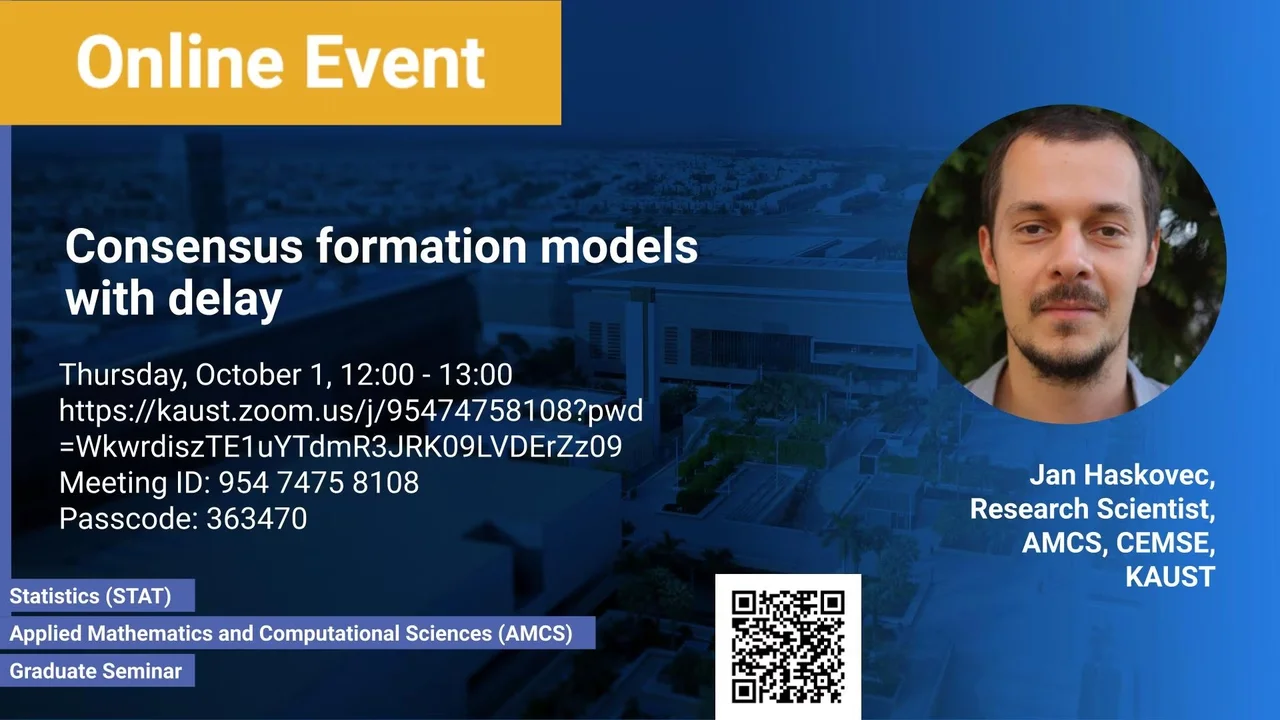
Consensus formation models with delay
- Jan Haskovec, AMCS, KAUST
KAUST
Individual-based models of collective behavior represent a very active research field with applications in physics (spontaneous magnetization), biology (flocking and swarming) and social sciences (opinion formation). They are also a hot topic engineering (swarm robotics). A particularly interesting aspect of the dynamics of multi-agent systems is the emergence of global self-organized patterns, while individuals typically interact only on short scales. In this talk I shall discuss the impact of delay on asymptotic consensus formation in Hegselmann-Krause-type models, where agents adapt their „opinions“ (in broad sense) to the ones of their close neighbors. We shall understand the two principial types/sources of delay - information propagation and processing - and explain their qualitatively different impacts on the consensus dynamics. We then discuss various mathematical methods that provide asymptotic consensus results in the respective settings: Lyapunov functional-type approach, direct estimates, convexity arguments and forward-backward estimates.
Overview
Abstract
Individual-based models of collective behavior represent a very active research field with applications in physics (spontaneous magnetization), biology (flocking and swarming) and social sciences (opinion formation). They are also a hot topic engineering (swarm robotics). A particularly interesting aspect of the dynamics of multi-agent systems is the emergence of global self-organized patterns, while individuals typically interact only on short scales. In this talk I shall discuss the impact of delay on asymptotic consensus formation in Hegselmann-Krause-type models, where agents adapt their „opinions“ (in broad sense) to the ones of their close neighbors. We shall understand the two principial types/sources of delay - information propagation and processing - and explain their qualitatively different impacts on the consensus dynamics. We then discuss various mathematical methods that provide asymptotic consensus results in the respective settings: Lyapunov functional-type approach, direct estimates, convexity arguments and forward-backward estimates.
Brief Biography
1999-2003 MSc. in Applied Mathematics, Charles U. in Prague
2003-2008 PhD. in Applied Mathematics, U. of Vienna
2008-2009 Postdoc in PDE Analysis, Vienna U. of Technology
2009-2012 Postdoc in PDE Analysis, Johann Radon Institute, Linz
2012-present Research Scientist, CEMSE, KAUST
